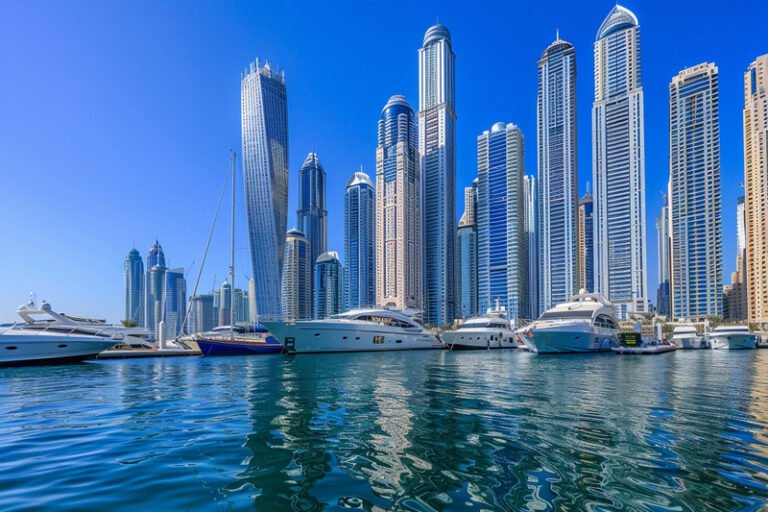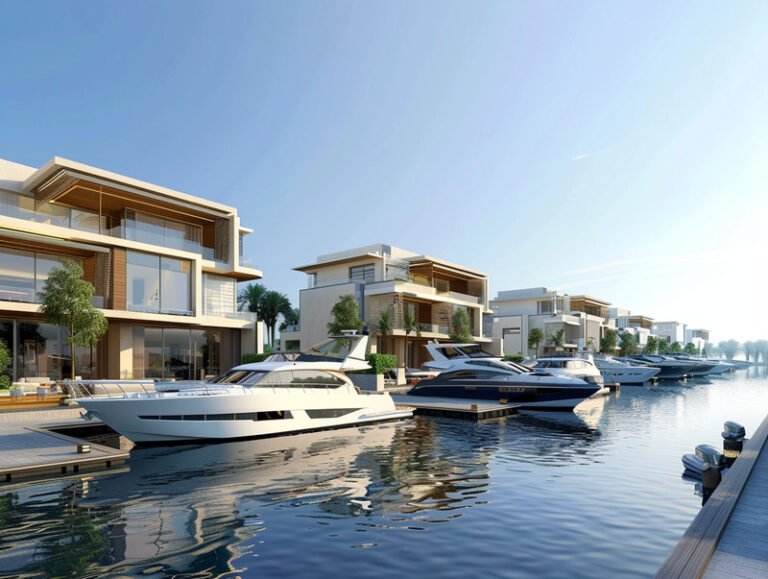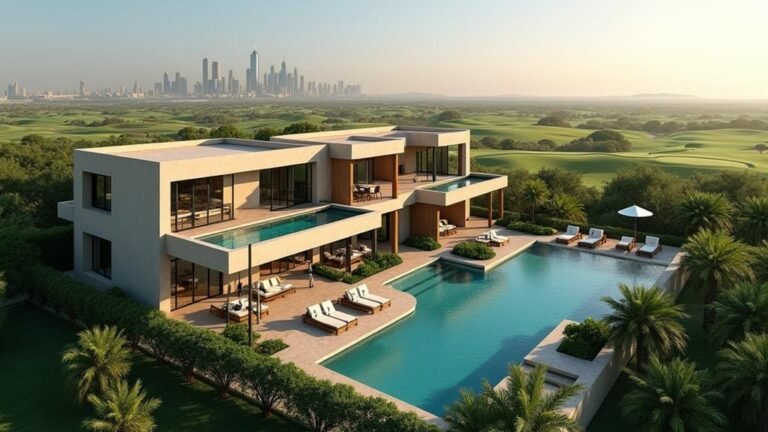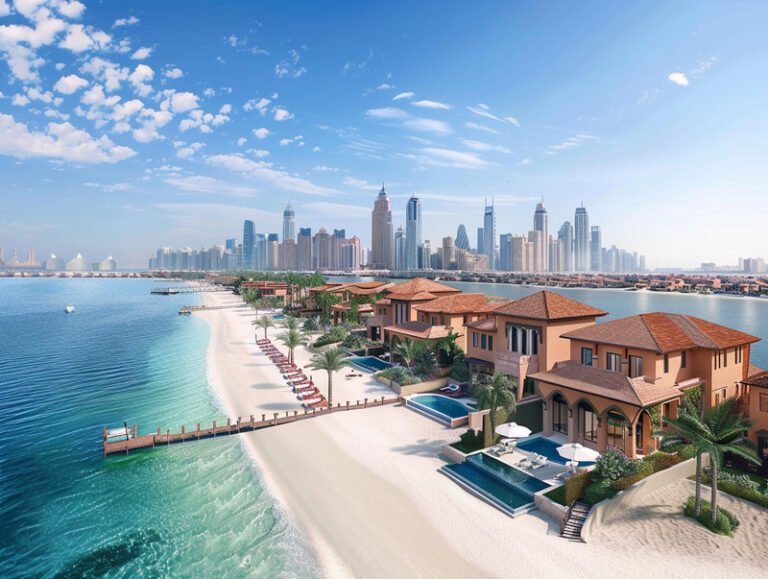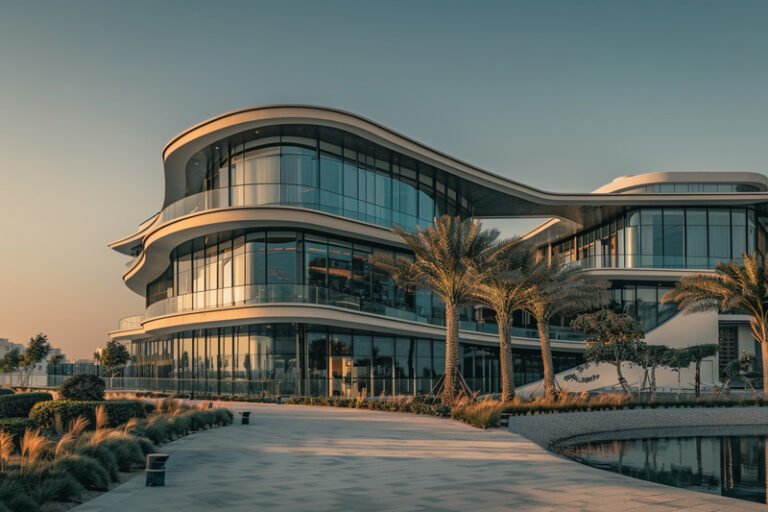Guide to Inspecting Properties Before Purchase

When buying property in Dubai, a thorough inspection is crucial to avoid unexpected issues and expenses. Evaluate the structural integrity, check for outdated electrical and plumbing systems, and look for signs of pest infestations or mold.
Assess the roof, foundation, and overall condition of both the interior and exterior to uncover hidden problems.
Focus on key areas and know when to bring in experts. This distinction could mean a solid investment or a costly error.
Key Takeaways
- When buying property in Dubai, a thorough inspection is crucial. Start by examining the foundation, walls, and roof for structural issues like cracks and water damage. Dubai’s climate can cause unique wear, so pay extra attention to moisture and heat damage.
- Check the electrical panel’s capacity and look for outdated wiring or plumbing materials. The city’s rapid growth means some properties may have outdated systems.
- Inspect moisture-prone areas for mold. Dubai’s humidity can create ideal conditions for mold growth. Consider a professional pest and mold inspection for added assurance.
- Ensure all doors, windows, plumbing fixtures, and electrical outlets are functioning correctly. Given Dubai’s temperature extremes, these elements can wear out faster.
- Lastly, assess the exterior. Look at the siding, gutters, and downspouts for wear and tear. Dubai’s weather can be harsh on these components, making regular maintenance essential.
Structural Integrity
Evaluating structural strength is crucial to guarantee your future home in Dubai is safe and secure. Start with the foundation.
Let us help you find the perfect property. Contact us to get started.
- Look for cracks, uneven floors, or signs of water damage, as these could indicate serious structural issues.
- Check the walls, both inside and out. Cracks, bulges, or misaligned doors and windows can signal underlying problems.
- Inspect the roof next. Look for missing or damaged shingles, sagging areas, and signs of water leakage in the attic. These issues can lead to costly repairs and may compromise the building’s structural integrity.
- Pay attention to the condition of support beams and trusses, as any damage here can affect the entire structure.
- Don’t overlook the basement, if the property has one. Check for dampness, mold, and signs of water infiltration. These can weaken the foundation.
- Inspect load-bearing walls and support columns for any signs of damage or deterioration.
Electrical and Plumbing
- When inspecting a property’s electrical and plumbing systems in Dubai, start with outdated wiring and plumbing materials that could pose safety hazards.
- Look for knob-and-tube or aluminum wiring, common in older homes but dangerous. Verify the electrical panel is up to code and can handle modern appliances. Test all outlets to confirm they’re functioning correctly and grounded properly.
- For plumbing, inspect pipes for materials like lead or galvanized steel, which can corrode and lead to water contamination. Check for visible leaks, particularly under sinks and around water heaters. Examine water pressure by turning on faucets and flushing toilets, ensuring no sudden drops or surges.
- Don’t forget to inspect the water heater, noting its age and condition. Water heaters typically last around 10-15 years, so budget for a replacement if it’s older.
- Check for proper ventilation in areas like the bathroom and kitchen, as poor ventilation can lead to moisture buildup.
Pest and Mold Inspection
Inspecting for pests and mold is crucial to ensure any Dubai property is safe and habitable.
- Start by examining the exterior. Look for signs of termites, such as mud tubes along the foundation or damaged wood. Check for ant trails, rodent droppings, or nests around the perimeter. These indicate potential pest infiltration.
- Inside, focus on areas prone to moisture—basements, bathrooms, and kitchens. Mold thrives in damp environments, so look for discoloration on walls, ceilings, or floors. A musty odor often signals mold presence. Use a flashlight to inspect dark corners, under sinks, and behind appliances.
- Hiring a professional pest and mold inspector in Dubai can provide a more thorough evaluation. They’ve specialized tools and knowledge to identify hidden issues.
- If pests or mold are found, get estimates for remediation costs. This information can help negotiate the purchase price or require the seller to address these issues before closing the deal.
Roof and Foundation
Ensuring the structural integrity and longevity of a property in Dubai requires a detailed inspection of both the roof and foundation.
- Begin by examining the roof for missing or damaged shingles, which can lead to leaks and water damage, especially during the rainy season. Look for signs of sagging as this can indicate structural problems.
- Pay close attention to the flashing around chimneys, vents, and skylights, common areas for water seepage. Next, inspect the gutters and downspouts. Ensure they’re securely attached and free of debris. Clogged gutters can cause water to overflow and potentially damage the foundation.
- For the foundation, examine the exterior base for cracks that could indicate shifting or settling. Small hairline cracks are normal, but larger ones may require professional evaluation. Inside, check for uneven floors or sticking doors and windows, signs of possible foundation issues.
- Look for water stains or mold around baseboards, which could indicate poor drainage or leaks. If the property includes a basement or crawl space, ensure it’s dry and moisture-free.
Interior and Exterior Condition
Evaluating both interior and exterior conditions is crucial for Dubai real estate. Start with the exterior by checking for wear on siding, windows, and doors.
- Look for cracks, peeling paint, or rotting wood, as these can signal deeper issues. Ensure the yard, driveway, and outdoor structures are well-maintained and hazard-free.
- Indoors, inspect walls, ceilings, and floors for cracks, stains, or damage. Watch for signs of water damage, especially around windows and bathrooms. Verify all doors and windows open and close correctly, and check for drafts indicating poor insulation.
- Examine plumbing fixtures like faucets, showers, and toilets for leaks or corrosion. Test electrical outlets and switches to ensure they work properly. Check the condition of built-in appliances and HVAC systems, as repairs or replacements can be costly.
- A thorough inspection of both interior and exterior conditions in Dubai will help you make an informed decision.
Neighborhood and Amenities
When considering a property in Dubai, don’t overlook the neighborhood and available amenities. The surrounding area greatly impacts your lifestyle and potentially your property’s future value.
- Start by evaluating the neighborhood’s safety. Check crime rates and talk to local residents to get a sense of the community’s security.
- Proximity to essential services like hospitals, schools, and grocery stores is vital. These elements contribute to daily convenience and can save you time and effort.
- Next, assess the availability of recreational facilities. Parks, gyms, and entertainment venues enhance quality of life and provide options for relaxation and leisure.
- Public transportation is another key factor. Easy access to buses, metro stations, or main roads can simplify commuting and increase the property’s attractiveness to future buyers or tenants.
- Additionally, consider the neighborhood’s overall development and future prospects. Areas with upcoming infrastructure projects or planned commercial centers can experience value appreciation.
- Visit the property at different times of the day to observe noise levels and traffic conditions. This thorough approach ensures you choose a property in a neighborhood that aligns with your needs and long-term goals.
Conclusion
When purchasing property in Dubai, conducting a thorough inspection is essential to avoid costly surprises. Examine the structural integrity and check for any cracks or signs of settling. Inspect the electrical and plumbing systems for any issues. Look for signs of pests or mold, which can be common due to the climate.
Don’t forget to check the roof and foundation. Dubai’s weather can be harsh, so ensure these areas are in good condition. Inspect both the interior and exterior for any wear and tear or damage.
Hiring professionals for a detailed inspection is a wise investment. They can help you identify potential issues and estimate remediation costs accurately. Your thoroughness guarantees a sound and secure investment in Dubai’s real estate market. Understanding the importance of professional home inspections can also save you from potential future headaches and expenses. By having a certified inspector examine the property, you can have peace of mind in knowing that you are making a well-informed decision. Ultimately, the small cost of a professional inspection can provide valuable assurance and protect your investment in the long run.
Let us help you find the perfect property. Contact us to get started.

